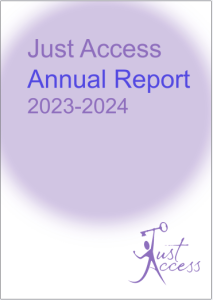
Luca Brocca
Just Access Representative to the United Nations Convention Against Corruption
Corruption networks often leave behind digital fingerprints in government datasets. Ironically, these schemes depend on legal mechanisms to secure their ill-gotten gainsŌĆöthink companies, land, and assets used for laundering money. All these activities are recorded in public contracts and government transactions. But when this information is kept in isolated silos, finding and fighting corruption becomes a Herculean task.┬Ā
Enter the age of technology and digital media. Driven by data, these advancements continue to transform our world, impacting our policies, institutional frameworks, and society as a whole. ┬ĀThis is where open data comes in. Open data is like a treasure trove of publicly available information, free for anyone to use, share, and repurpose. When governments publish data openly, it empowers officials, journalists, and citizens to follow the money, understand who’s doing what, and identify shady activities.┬Ā
Advocates for the use of open data to fight corruption assert that transparency in government operations allows citizens to hold officials accountable for public spending. When large datasets are available for public scrutiny, corruption levels should drop. The idea is simple: the more governments open up to citizen oversight, the better their behaviour will be.┬Ā
The idea is simple: the more governments open up to citizen oversight, the better their behaviour will be.
Back in 2011, government leaders and civil society advocates embraced open data principles to combat corruption through the Open Government Partnership (OGP), a global initiative promoting transparency. According to the partnership, for open data to effectively fight corruption, it must be timely, accurate, free to use, and easy to analyse.┬Ā
To date, the OGP’s Independent Reporting Mechanism, which tracks the progress of member countries, shows mixed results. For example, South Africa pledged to fight corruption with open data but struggles with implementation due to a lack of available datasets. IBy contrast, Denmark, the Czech Republic, and Mexico achieved stronger results in their commitments when the engagement of civil society and citizens played a crucial role in the implementation process. Nonetheless, the partnership promotes greater transparency and accountability across member states.┬Ā
From government officials to civil society and journalists,ŌĆ»everyone needs data to spotŌĆ»patterns of suspicious transactions, procurement anomalies, and administrative irregularities to combat corruption.ŌĆ»The Open Data CharterŌĆÖs Open Up Guide to Combat Corruption highlights key datasets, open standards, and real-world examples that can help tackle corruption. By focusing on these, we can address corruption at every level and outsmart even the most complex networks.
Still, using open data to fight corruption is promising but tricky because of privacy concerns. Releasing information about government contracts, public spending, and official activities can very often reveal personal details or confidential information. This risk is heightened by the ŌĆ£mosaic effect,ŌĆØ where unrelated bits of data can be combined to identify individuals. Even when data is anonymised, combining multiple datasets can still reveal identities. Advances in data collection and big data analytics make this easier and more dangerous.┬Ā
Without data, anti-corruption agencies, investigative journalists, and civil society organisations can’t do their jobs, public trust in government declines, and the corrupt thrive. Yet, these privacy concerns are legitimate. It is the responsibility of those in public office to balance these competing concerns. Public officials need to accept some level of heightened scrutiny for the greater good of preventing corruption while also navigating privacy protection issues.┬Ā
┬Ā









